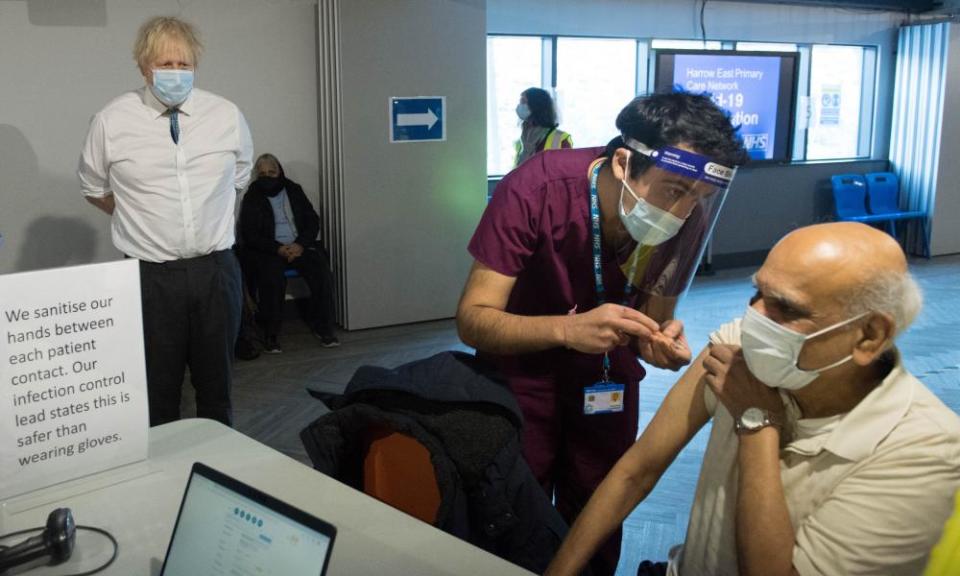WHO urges Britain to pause Covid jabs after treating vulnerable

The World Health Organization has urged the UK to pause its vaccination programme after vulnerable groups have received their jabs to help ensure the global rollout of doses is fair.
Boris Johnson has said he aims to offer all adults in the UK a first dose by autumn. However, the WHO said countries should be aiming for 2bn doses to be “fairly distributed” around the world by the end of 2021.
A WHO spokeswoman, Margaret Harris, said she wanted to appeal to people in the UK, telling them: “You can wait” because ensuring equitable global distribution is “clearly morally the right thing to do”.
The UK has one of the highest levels of vaccine coverage, along with Israel and the UAE, but many poorer countries are yet to start any immunisations.
Johnson said this week the UK was on target to reach its goal of vaccinating the most vulnerable by 15 February.
When asked to clarify whether the UK should help efforts elsewhere once it had vaccinated its top nine priority groups, Harris told BBC Breakfast: “We’re asking all countries in those circumstances to do that. Hang on, wait for those other groups.
“We’ll also appeal to all the people of the UK – you can wait.
default
“We’re asking countries, once you’ve got those [high-risk and healthcare worker] groups, please ensure that the supply you’ve got access to is provided for others.
“While that is morally clearly the right thing to do, it’s also economically the right thing to do.
“There have been a number of very interesting analyses showing that just vaccinating your own country and then sitting there and saying ‘we’re fine’ will not work economically.”
WHO directors have previously said that vaccine nationalism could cost high-income countries $4.5tn (£3.3tn), while a report commissioned by the International Chamber of Commerce Research Foundation found that the world economy could lose $9.2tn if developing countries did not get access to vaccines.
Sir Jeremy Farrar, a member of the government’s Scientific Advisory Group for Emergencies (Sage), has also warned that vaccinating “a lot of people in a few countries, leaving the virus unchecked in large parts of the world, will lead to more variants emerging”.
He has argued that countries with existing vaccine supply deals could donate a percentage of doses to the WHO’s Covax global vaccine-sharing fund “without taking away from the national effort to protect the most vulnerable in society and healthcare workers”.
It was revealed this month that the UK has helped raise more than £730m for the Covax advance market commitment, including £548m in UK aid, to help distribute 1.3bn doses of coronavirus vaccines to 92 developing countries this year.
In mid-January, the UN secretary general, António Guterres, said in a video message that governments had a responsibility to protect their people, “but ‘vaccinationalism’ is self-defeating and will delay a global recovery”.
“Science is succeeding, but solidarity is failing,” he warned. “Vaccines are reaching high-income countries quickly, while the world’s poorest have none at all.”

 Yahoo News
Yahoo News 